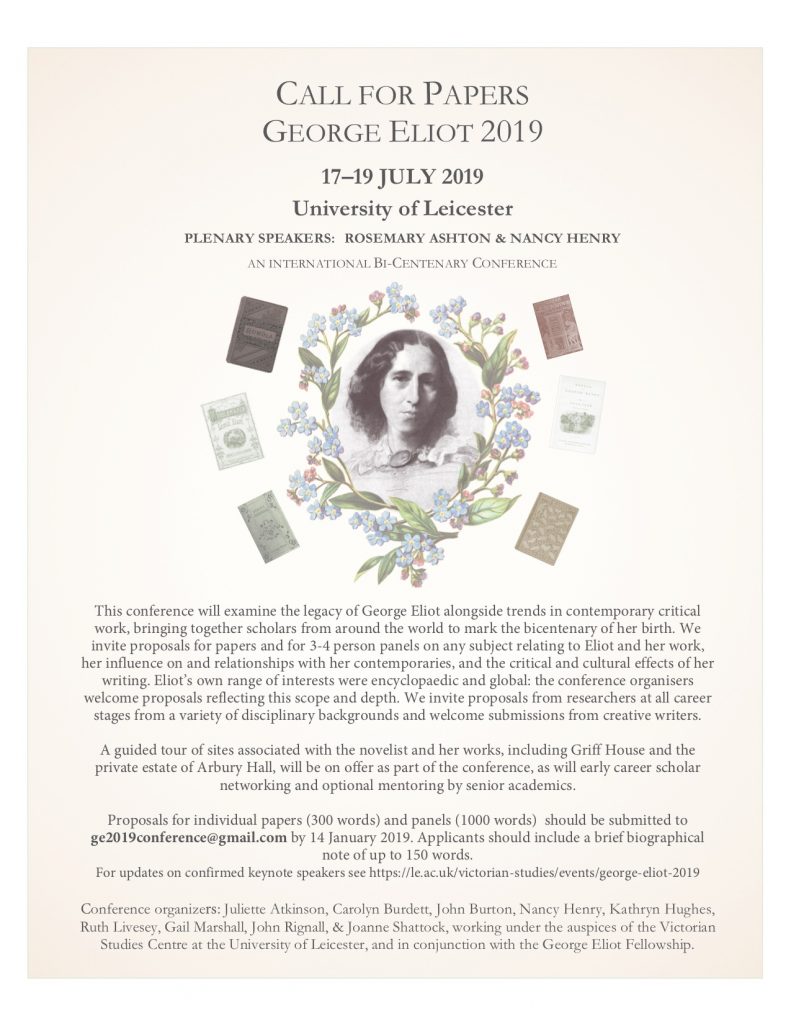The editors of Brief Encounters are pleased to open a call for papers for the journal’s fourth issue and warmly invite research students and staff to submit a short article, review or creative piece of work for publication. Submissions deadline: Monday, 17th June 2019.
Brief Encounters is an open access, interdisciplinary, peer-reviewed, postgraduate journal organised by CHASE. All postgraduate research students, regardless of their funding status, are welcome to submit to the journal as are staff.
For students in particular, publishing in the journal offers the opportunity to experience the peer-review process, to give their research exposure, and to build their publication record.
……………………………………………………………………………..
Call for Papers – Brief Encounters – Issue 4
URL: http://briefencounters-journal.co.uk/BE/pages/view/call-for-submissions
Brief Encounters is now open to submissions from research students and staff at CHASE-affiliated institutions (see below for the list). We welcome submissions in the form of academically rigorous and original articles (500–4,000 words), reviews (500–1,000 words) and creative works.
The deadline for submissions is Monday, 17th June 2019.
Brief Encounters welcomes submissions from any field. The journal’s aim is to improve the exchange of ideas between geographical or disciplinary boundaries. The journal provides a space where researchers can publish short articles and share findings which might not be long enough for publication in another journal. We also aim to help students in creative disciplines share their work and engage with other researchers (see below for more information about this).
There is no theme and all submissions will be considered on their own merits. In the past, articles have reflected the academic diversity of our author-base, with work touching on concepts like belonging, embodiment, sustainability, change, identity, space, deviation and division.
Submitting to the journal provides a valuable opportunity for authors to experience the peer-review process in a constructive environment – something especially valuable for postgraduate students and early-career academics.
What is Brief Encounters?
Brief Encounters is an open access peer-reviewed postgraduate journal, run by doctoral researchers from the CHASE doctoral training partnership to showcase the work of research students, staff and alumni of CHASE-affiliated institutions (see here for the list).
About reviews
Reviews can cover new publications, films, theatre productions, documentaries, and major exhibitions engaging with any aspect of the arts and humanities. Reflecting the ethos of CHASE, we are particularly interested in emerging scholarship and innovative interdisciplinary publications and productions.
About creative works
The editorial board is especially keen to receive submissions for its creative section; potential submissions could include (but are not limited to): video essays, creative writing, documentaries, posters, musical interpretations, and photography. These must be accompanied by a critical commentary of no fewer than 500 words.
Who can submit?
- CHASE-funded students (see a list of institutions)
- Postgraduate students at CHASE institutions (regardless of funding status)
- Alumni of CHASE institutions
- Individuals employed by CHASE institutions
- Individuals employed by Non-HEI CHASE partners
Submission guidelines
Submission should be made by the deadline, Monday, 17th June 2019, through the Brief Encounters on-line submission process (see our step-by-step guide).
All submissions will follow MHRA style guidelines (footnotes and bibliography). Please see our style guide for further details.
Authors need to register with the journal prior to submitting or, if already registered, can simply log in and begin the five-step process.
Along with your article, please submit an abstract (max. 300 words), and a list of key words (max. 5). When you register as an author on the website, please provide a brief bio statement (max. 200 words).
If you have any queries please contact journal@chase.ac.uk
. . Category: Archived Call for Papers . Tags: AHRC, Brief Encounters, Call for Papers, CFP, Chase, CHASE Consortium, Creative Writing, open access, reviews

